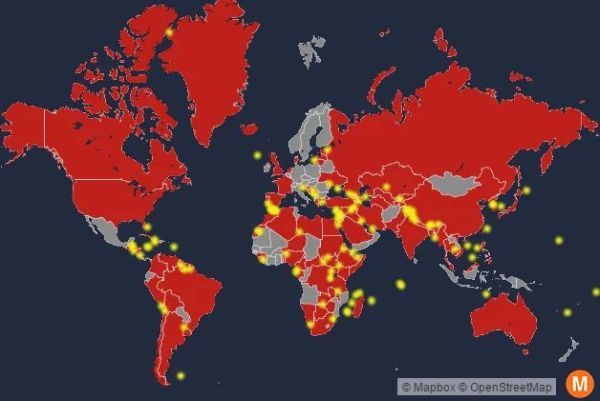The International Criminal Court (ICC) is supposed to prosecute perpetrators of the worst types of crimes, like genocide, mass deportation, crimes against humanity and war crimes.
But toward the end of 2019, at the request of the Palestinian Authority, the ICC’s prosecutor, Fatou Bensouda, announced that she is prepared to open a formal inquiry into whether Israel has committed war crimes: by building houses.
Specifically, Bensouda is examining residential communities, which are often called “settlements.” She’s also investigating alleged IDF crimes during the 2014 Gaza war and last year’s riots along the Israel-Gaza border. She is currently waiting for a final confirmation from the International Criminal Court’s judges that she has jurisdiction to investigate. But this week’s news focused primarily on the legality of settlements.
Much of the world calls the area in question the “West Bank,” a name applied by Jordan during its 19-year occupation from 1948 until 1967, and still used by much of the international community today. Previously the area was called, “Judea and Samaria,” after its ancient Jewish inhabitants. For now, I will refer to the area simply as the “disputed territories,” as they are the subject of a very real and ongoing, dispute.
This is not a question of whether Jewish settlements in the disputed territories are right or wrong, which is a topic of debate even among Israelis. Nor is it a question of whether Jews or Palestinians have historic, legal or emotional connections to this land. The question is whether building Jewish communities in the disputed territories is an illegal war crime.
Join the fight for Israel’s fair coverage in the news
What the Law Says
The Palestinian complaint points to Article 49 of the 4th Geneva Convention which says:
The Occupying Power shall not deport or transfer parts of its own civilian population into the territory it occupies…
Similar language can be found in the International Criminal Court’s Rome Statute, Article 7.
Some Israelis argue that the situation in the disputed territories is not an “occupation” for a number of historical and technical reasons. However the Israeli Supreme Court has ruled ruled in numerous cases that Israel must follow the international laws related to occupation in these territories. So according to Israeli law, the Geneva Convention rules do apply.
Related reading: Boycotting Israel: Is it Free Speech?
Which brings us to the issue of forced population transfer.
Given the above, the key question becomes: Has Israel violated Article 49?
No.
Numerous international tribunals have clarified that Article 49 refers specifically to forced population transfers. Israel has never forced anyone to live in the disputed territories, nor has Israel forced existing populations to leave. Indeed, the Palestinian population has nearly quadrupled in the years since the disputed territories came under Israeli control in 1967.
In short, Israeli settlements do not violate article 49 of the Geneva Convention.
Double Standards
There are 124 territorial disputes around the world and in exactly none of them is building homes in disputed territory prosecuted as a war crime. Not in places such as Russian-occupied Ukraine, Turkey’s occupation of Northern Cyprus, or Morocco’s total takeover of Western Sahara.
Only Israel.

The law actually makes sense. Land disputes around the world often continue for years, even generations. During that time, life goes on, and individual people and communities need to be able to live and grow even as politicians work out their differences.
However, applying a unique law to Israel that is not applied to any other country, is, in a word, illegal.
But it gets worse.
Palestinians are not asking the International Criminal Court to halt all building activity during this dispute: rather they demand (in effect) that Jews, and only Jews, stop building homes in the region, while Muslims and Christians may continue.
Applying a unique law to Jews that is not applied to any other people or religion, is both illegal and racist.
Related reading: Can You Sue the Media for Bias?
Technical Issues
There are other, more technical problems. For example, as Israel is not a member of the International Criminal Court, it is not clear that the court can even apply jurisdiction. Also, in the 1990s Israel and the Palestinian Authority entered into the Oslo Accords, agreeing to handle this dispute through direct negotiation rather than through international tribunals.
But technicalities aside, the most important thing is that laws must be applied universally to all people, regardless of race, religion or nationality. By not dismissing the Palestinian complaint out of hand, the ICC is already applying a unique double standard to the Jewish people, and to the Jewish state, that it does not apply to any other territorial dispute.
Most disturbing of all is the question of legal and moral precedent: the day we decide it is acceptable to interpret laws in a way that applies uniquely to Jews, we must ask ourselves…who’s next?
Liked this article? Follow HonestReporting on Twitter, Facebook, Instagram and TikTok to see even more posts and videos debunking news bias and smears, as well as other content explaining what’s really going on in Israel and the region.
Featured image: Bensouda via YouTube/IntlCriminalCourt;



